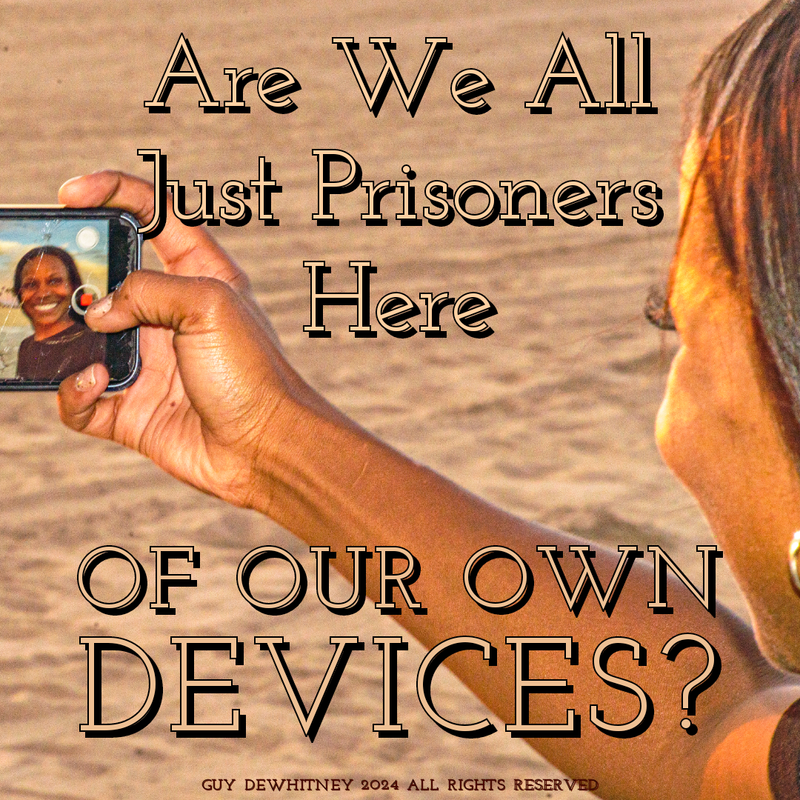The only animal an archeologist might study without their own remains being present is Man. We have always stood alone as imaginative creators of tools. The entire physical world, including our bodies, humans treat as containting tools to accomplish a task or solve a problem; we simply root around in reality until we find one that serves our purposes.
From the first sharpened stone to the space-faring rocket, from fire to fiber optics, we have carved out dominion not by tooth and claw but through imagination and craft. Tools elevated us. Tools made primates supreme among mammals and humans gods among primates.
But gods, too, are social beings. Especially when higher natured examples are lacking in our neighborhood & we must make up best practices for living with the power reserved heretofore to hypothetical tribal theologies.
We are, first and foremost, mammals—creatures of herds, of packs, of families. We do not thrive in isolation. Our most vital strength has always been found in the collective: in story, in touch, in eye contact, in laughter echoing across firelight. We are built to connect in groups, but especially, & essentially in pairs, masculine to feminine in fecund sexual, familial & social matrices.
Tools were meant to liberate us to this, for this, because of this. But the greatest of our modern tools, the smartphone, has betrayed its promise.
The smartphone is no ordinary tool. It is the apex artifact of human ingenuity: a pocket-sized genie capable of granting infinite wishes. With it, we summon entertainment, communication, validation, productivity, even love. But unlike the old legends, this genie doesn’t vanish back into the bottle. It never sleeps, never tires, never pauses. It grants wishes unceasingly—at a cost we didn’t foresee.
In granting our every digital desire, it has stripped us of what we most deeply NEED: each other.
This tool, once hailed as a liberator, has quietly become our most intimate tyrant. It makes everything easier, yet made nothing more meaningful. We have exchanged the richness of presence for the efficiency of posting & scrolling. The beautiful, unpredictable, spontaneous human interaction has been replaced by curated highlight reels & half-truths in text and image, devoid of improvisation, devoid of exploring touches, & ultimately devoid of soul.
Our brains run on two ancient currencies: dopamine and serotonin. Dopamine motivates us to act, to pursue, to anticipate rewards. The smartphone is a dopamine factory. It is engineered to seduce, to addict, to distract—every notification, every scroll, every tap another hit. But serotonin the neurochemical of connection, of belonging, of inner peace & intimate nibbles and giggles requires something slower & physically personal. Something human. Something real.
And this the smartphone cannot give and will never give though we sell it our very soul.
It was not always this way. In the era of landline internet, the online world was a portal, a place we visited. We lived in the real world, returning to the web like a swimmer to the surface after diving to look at a fish or pick up a pebble. With untethered smartphones the portal became a prison. The digital world no longer existed as a set of tools alongside our lives, it replaced them. It colonizes every quiet moment, every pause in the day once filled by conversation, reflection, or just being by "solving" every problem or reason shaping those days, requiring those conversations, & leaving plenty of space for reflection.
We now eat together, work & speak with each other but, we don't remember/know how to converse. We gather but no longer connect. We watch sunsets in space without awe, with cameras focused on our empty performance lives that were meant to be lived.
Children no longer learn to read facial cues, and find difficulty in holding eye contact.
Friends drift apart without friction or fight—just a slow, silent atrophy of interaction. Lovers share beds but not presence.
To paraphrase Oliver Hardy... Well! Isn't THIS another fine mess we've gotten ourselves into?



